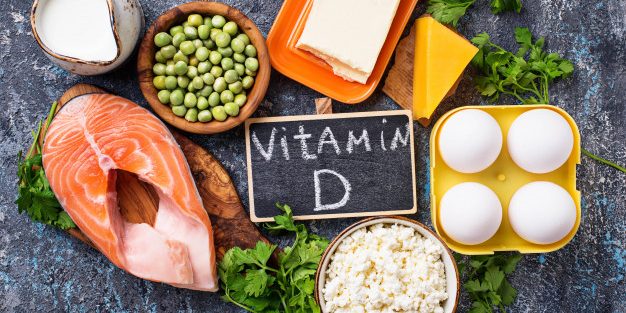
Vitamin D, also known as calciferol, is a fat-soluble vitamin. Vitamin D deficiency is very common, and most people are totally unaware of it. On top of that, many office employees are deficient in vitamin D because they are cooped up in an office from 9 am to 5 pm, and only come out when the sun begins to set.
Let’s look at why vitamin D is important and how you can get more of it naturally.
Vitamin D is a vital nutrient that has a wide range of effects on our body’s system. In the body, activated vitamin D enhances calcium absorption in the body which helps to keep you from developing osteoporosis, a disease that thins and weakens your bones, making them more prone to breaking. Vitamin D is also required by your body for other functions. As calcium is required for proper muscle function, it aids your body in contracting your muscles effectively. Furthermore, vitamin D plays an important role in your immune system and brain function.
How to boost vitamin D for office or other indoor workers:
Take your food to or get some refreshments from any outdoor to obtain some vitamin D from the sun exposure.
When you need a short break from your job, take an afternoon stroll outside in the sun.
Before going to the office, wake up a little earlier and go for brisk morning walk. It helps you to absorb vitamin D while keeping you active!
Try to schedule a meeting outside occasionally. It can help increase productivity because of the change in the venue apart from getting a boost of sunshine and vitamin D.
You can get extra sun exposure and exercise if you park your car further away from the office or walk to and from the train or bus station.
How to Get More Vitamin D from Your Food:
Since milk is fortified with vitamin D, it is an excellent source of this nutrient. This will also aid the body’s absorption of the readily available calcium in milk! Beside milk, vitamin D is often added to other food such as breakfast cereal, yoghurt and orange juice to increase vitamin D intake through one’s diet.
Fatty fish and seafood such as salmon, tuna, sardines, herring, mackerel are some food sources that contain high amounts of vitamin D.
Egg yolks are another good source of vitamin D that you can easily incorporate into your diet.
Just like human, mushrooms can also synthesize their own vitamin D when exposed to sunlight.
Sources suggest that 10 minutes of exposure is sufficient for lighter-skinned individuals to produce adequate vitamin D. Meanwhile, those with darker skin might need to wait a little longer. Although it is important to prevent overexposure to sunlight in order to avoid skin cancer, it only takes a small amount of unprotected sun exposure for your body to begin producing vitamin D.
Many people around the world are deficient in vitamin D. Spending more time in the sun is a healthy way to get your regular dose of vitamin D besides eating vitamin D-rich foods.
References:
1.https://www.healthline.com/nutrition/vitamin-d-deficiency-symptoms
2.https://www.healthline.com/nutrition/how-to-increase-vitamin-d
3.https://www.medlife.com/blog/10-easy-ways-boost-vitamin-d-levels-office-workers/
4.https://www.workitdaily.com/get-enough-vitamin-d-at-work/how-to-get-enough-vitamin-d-at-work













